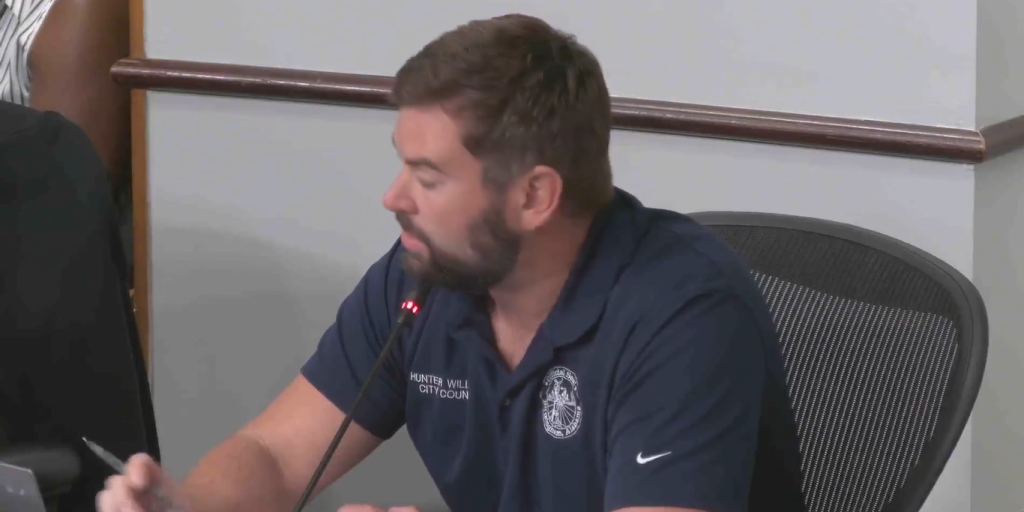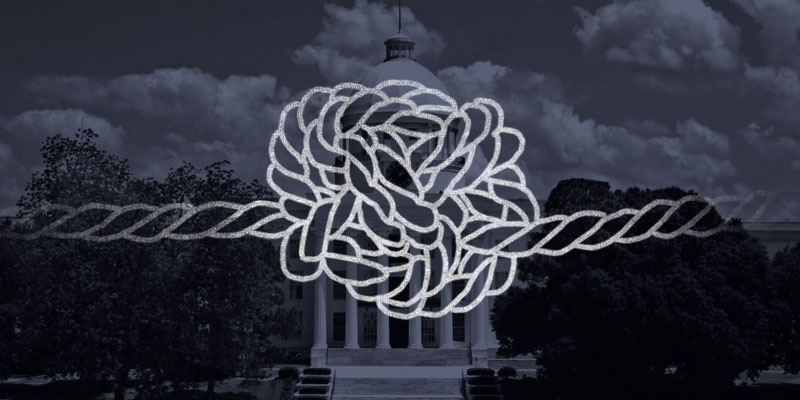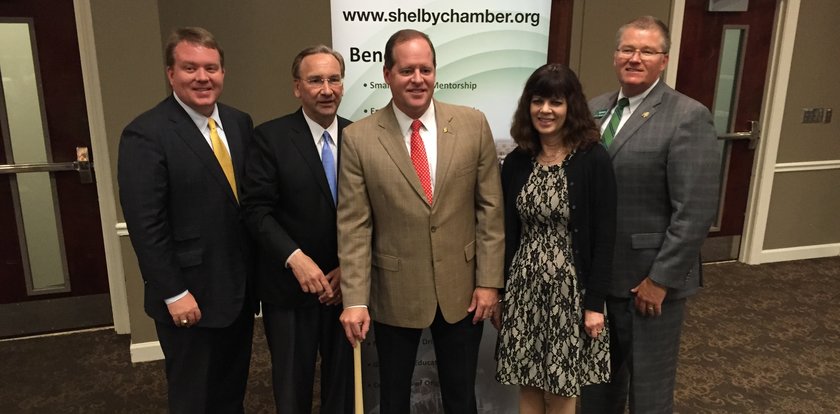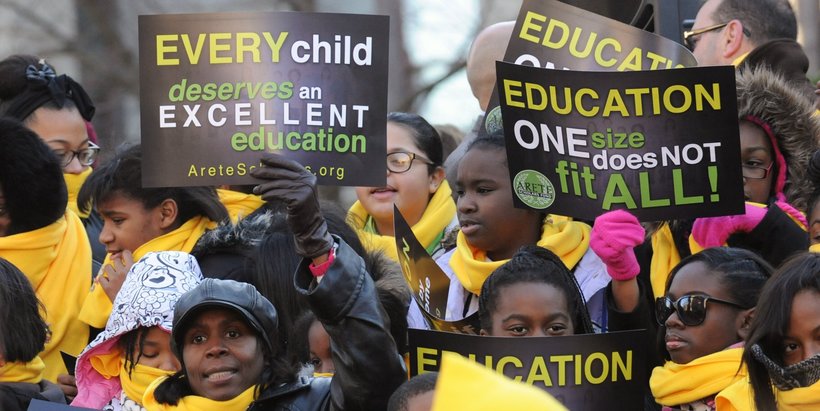Few things can be as frustrating as walking into a voting booth and attempting to decipher ballot language for constitutional amendments. They are usually jam-packed with legalese and long run-on sentences. There can also typically be valid arguments on both sides of an amendment, making it even more difficult to make a decision.
Occasionally though, there is an amendment that is so cut-and-dry and full of commonsense that it’s hard to imagine anyone opposing it. Amendment 4 on the ballot this coming Tuesday is one such amendment.
Unfortunately, Amendment 4 has found itself in the crosshairs of the uber-liberal political operation of the AEA which is bent on maintaining the status quo and regaining its stranglehold on the state.

So in an effort to combat the hundreds of thousands of dollars being spent by the AEA in a disingenuous smear campaign against Amendment 4, I will walk you step-by-step through this so you can make the most informed decision possible. Please take the time to share this with your friends so they can do the same.
Amendment 4 ballot language:
“Proposing an amendment to the Constitution of Alabama of 1901, to repeal portions of Amendment 111, now appearing as Section 256 of the Official Recompilation of the Constitution of Alabama of 1901, as amended, relating to separation of schools by race and to repeal Section 259, Amendment 90, and Amendment 109, relating to the poll tax.”
What does it mean?
Amendment 4 simply removes language regarding segregated schools and poll taxes from the recompiled version of the Alabama Constitution. The U.S. Supreme Court ruled in 1954 (Brown v. Board of Education) and in 1966 (Harper v. Virginia Board of Elections) that state laws establishing racially segregated schools or requiring poll taxes were unconstitutional. Because of that, the language Amendment 4 removes from the Constitution has no practical or legal effect on Alabama citizens AT ALL.
Othni Lathram, Director of the non-partisan Alabama Law Institute, even said as much in his analysis of the amendment. “In my opinion this would not have any impact on the rights, funding, implementing, or structure of public education in Alabama,” Lathram said, “but would instead only strike the language reflecting vestiges of segregation in schools.”
If it has no practical or legal effect, why should we care?
Because Alabama isn’t the same place it was 50 years ago — and it’s time we let the rest of the world know. In the current highly-competitive economic development climate, other states continuously point to this part of our Constitution to get a leg-up on us when recruiting new companies — both foreign and domestic.
If Amendment 4 fails, it would be the second time in 8 years this has happened.
“In 2004, Alabama took a black eye because the amendment was voted down,” Sen. Arthur Orr, sponsor of Amendment 4, told the AP. “What they heard outside the state is Alabama votes to reaffirm its commitment to segregationist language and poll taxes.”
If a business owner in the Rust Belt looks to move to a right-to-work, low tax state and sees that Alabama has voted twice in 8 years for segregation and poll taxes, they will immediately think, “I don’t want to go there. They’re still fighting over civil rights.”
We can’t let that happen.
Now, for a little more background, let’s take a look at the opposition to this amendment.
1. The AEA: Always remember, it’s not the AEA’s job to advocate for the best interest of education or school children. As a teacher’s union boss purportedly once said, “When schoolchildren start paying union dues, that’s when I’ll start representing the interests of school children.” They’re advocating for more money and more power and they’re doing everything they can to regain their strength.
2. The Alabama Democratic Conference chaired by long-time AEA #2 Joe Reed.
3. The Alabama New South Alliance whose founders include leftwing Democrat Senator Hank Sanders.
Here’s an ad that the AEA has put hundreds of thousands of dollars behind:
Cecil Gardner, Martha Morgan and Bobby Segall are three of the most well-known leftwing liberal attorneys in the state. Gardner and Segall have both tried multiple cases for the AEA, and Morgan’s radical activist past is widely known, including her work with the ACLU and as a “researcher” in the National Assembly of Nicaragua in the 1980s under the communist Sandinista regime.
Does this group of individuals — who the AEA put together as the faces of the Amendment 4 opposition — represent the same values and ideals that you do?
In the past, the AEA has filed lawsuit after lawsuit trying to get a court to hold that students in Alabama have a “right” to public education. While that sounds fair and good, classifying something as a “right” has serious potential to allow a judge to increase taxes on all Alabamians. That’s exactly what AEA and their hired guns mentioned above want to happen.
They feel like their path to a massive lawsuit will be made harder if Amendment 4 passes. But the truth is, if AEA wants to file a lawsuit on Nov. 7th, they have every right to do so, regardless of whether Amendment 4 passes or fails.
It’s asinine that they’re willing to once again damage our state’s reputation over this, but I suppose it’s not surprising given their history.
In the AEA’s op-ed against Amendment 4 they said, “those of us concerned about the future of public education need to vote against this amendment on the November ballot.” But in reality, those of us concerned about the future of public education need to send another message to the AEA that we’re tired of them holding our state back for the sake of their power and pocketbooks.
Vote yes on Amendment 4.










